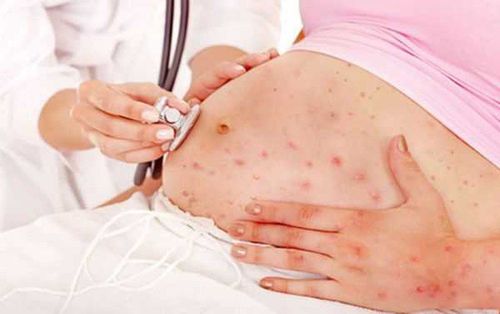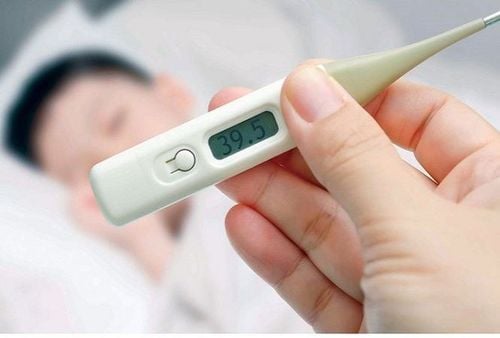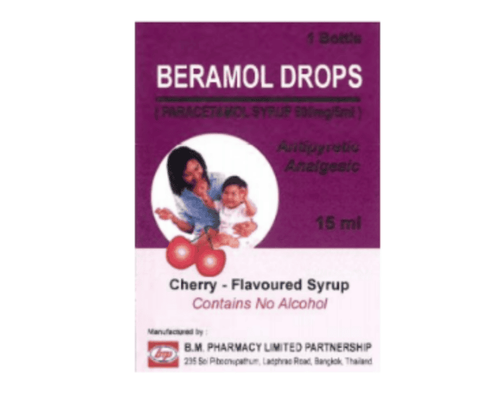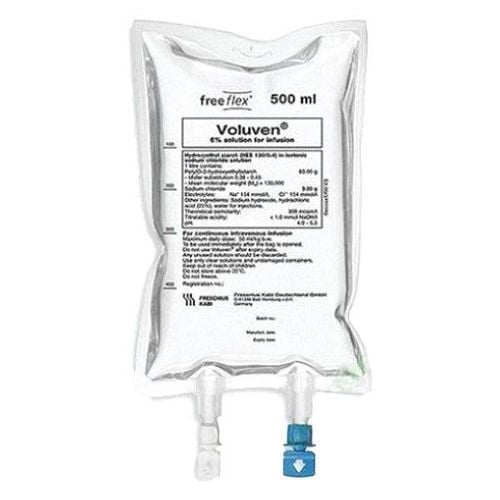This is an automatically translated article.
The article was professionally consulted by Associate Professor, Doctor, Doctor Hoang Dang Mich - Head of Department of Medical Examination & Internal Medicine - Vinmec Ha Long International General HospitalIn Vietnam, dengue fever can appear in any province and in any season of the year. When the disease progresses to the stage of serious complications that can cause death for the patient. Let's learn in the article below the severe symptoms of dengue fever in adults and children for timely prevention.
1. How dangerous is dengue fever?
Dengue fever is a common disease in Vietnam, due to the tropical monsoon climate, dengue fever easily spreads to the community, especially the southern and central provinces with hot and humid characteristics all year round. Dengue hemorrhagic fever is a disease caused by infection with the dengue virus, transmitted by the Aedes aegypti mosquito, also known as the midges mosquito. This disease has been recorded since the 13th century with the number of cases continuously increasing over time.
This is also a disease classified by WHO as a dangerous infectious disease of concern because it has occurred in more than 100 countries with the number of infections reaching 50-1000 cases per year.
This disease is trending more commonly in Asian countries and is even considered the leading cause of infectious diseases leading to hospitalization or death in this region.
Dengue fever is transmitted to healthy people by the bite of Aedes aegypti mosquito. This is a type of mosquito that often bites people during the day and they do not naturally carry the dengue virus by themselves, but because they bite an infected person and then transmit it to other healthy people.
Currently, there is no effective vaccine for dengue fever. Medicine is still in the research process to find a specific vaccine to prevent this disease. Currently, there are no specific drugs or treatments for this disease, treatment mainly includes monitoring and care activities as well as supporting necessary functions for the body. .
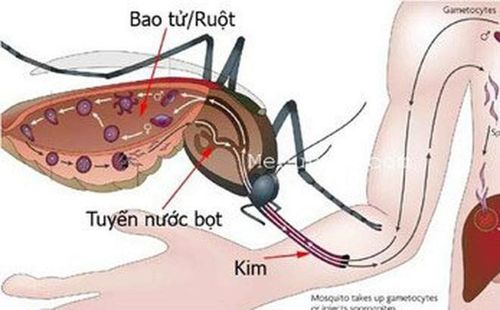
2. Signs of dengue fever in adults as well as children
Dengue fever transmitted by mosquitoes usually has a very sudden onset and progresses rapidly through 3 stages.
Stage 1: The first is the fever phase, in the first 1 or 2 days, the patient has a sudden high fever, the body temperature can reach 39 - 40 degrees Celsius. During this stage, the symptoms Symptoms are often difficult to distinguish from common viral fevers.
If there is a suspicion of dengue fever, it is necessary to take the patient to medical centers for Dengue NS1 Ag test immediately. If the patient receives a positive result, it is certain that the patient has dengue fever and needs prompt treatment.
Stage 2: The next stage is a very dangerous stage, during which severe symptoms of dengue fever begin to be noticed. This phase usually starts from the 3rd to the 7th day from the time of fever.
At this time, the patient may have had a fever but still have symptoms such as bleeding under the skin, nosebleeds or bleeding gums. Subcutaneous hemorrhages often appear on the front of the legs, the inside of the arms, abdomen, thighs...
These are red spots or a bruised patch depending on the extent. More serious complications, patients may have internal bleeding, pleural or peritoneal effusion, gastrointestinal bleeding or more seriously, brain hemorrhage. At this stage, the patient should be closely monitored for signs of bleeding and regularly tested for platelets.
Bleeding under the skin when the patient has dengue fever
Stage 3: After the dangerous stage, the patient will enter the recovery phase. At this stage, the patient's fever was gone and his condition started to get better. The patient had an appetite, hemodynamics began to stabilize and the patient urinated a lot, platelet tests gradually increased and returned to normal.
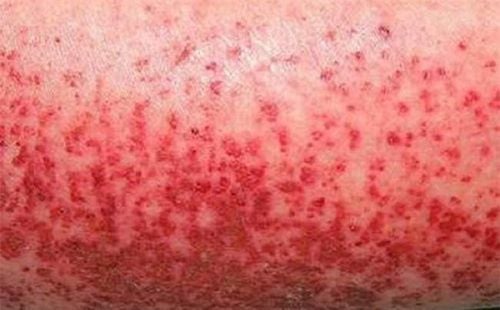
3. What tests should be done when having dengue fever?
When dengue fever is suspected, it is necessary to take the patient for testing to identify the disease early and have timely treatment.
Vinmec International General Hospital always has tests to identify dengue fever. Those are Dengue virus NS1 Ag test and blood count test. The test to determine the existence of Dengue virus helps doctors diagnose whether a patient has dengue fever or not, thereby having a timely treatment plan to ensure the patient's health.
Besides, the patient also needs to have a complete blood count test to determine the number of red blood cells, platelets, and white blood cells. In particular, the platelet count is very important in the diagnosis and treatment of dengue fever. If the platelet count drops sharply, the patient needs to be hospitalized for treatment and monitoring, and if the platelet count is low, the patient can be sent home for further monitoring.
Please dial HOTLINE for more information or register for an appointment HERE. Download MyVinmec app to make appointments faster and to manage your bookings easily.
The article is compiled from the source: World Health Organization WHO



